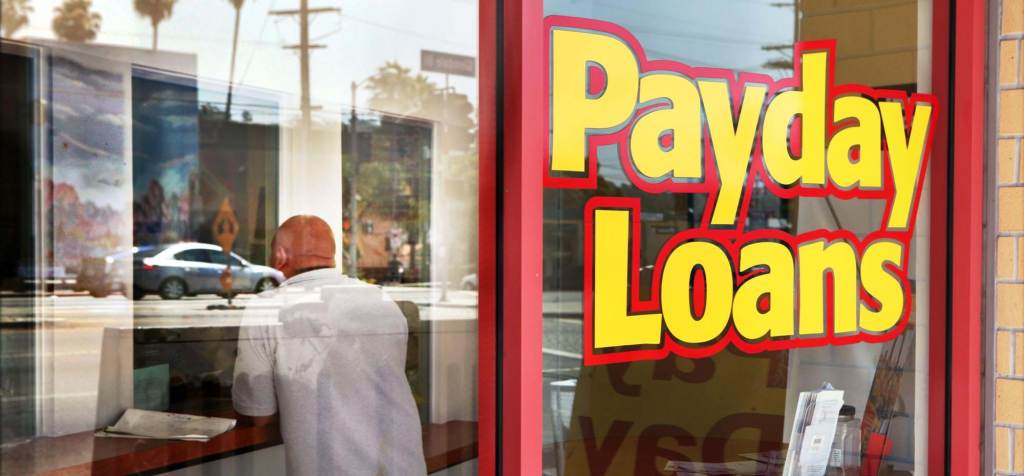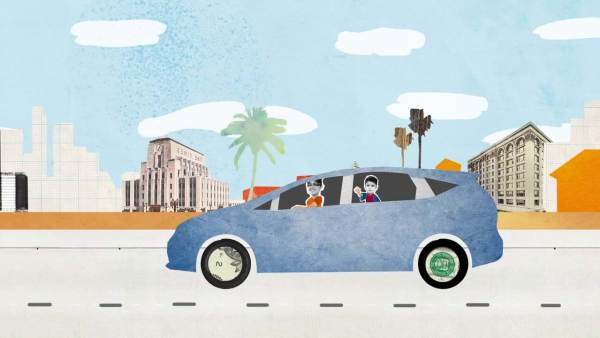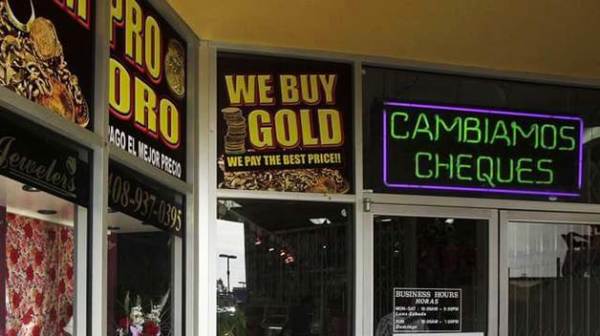
As the CEO of a community development financial institution (CFDI) that serves low-income and working class households, I’m often asked: Why do consumers go to high-interest payday lenders to get small-dollar loans— and in the process rack up hundreds or thousands of dollars in debt—rather than to banks or credit unions?
The answer is that most banks and credit unions simply don’t offer small dollar loans. For most of them, it doesn’t make good business sense given the considerable staff time, systems, and oversight needed to issue and document an in-person loan for such a small amount.
Say, for example, that a bank is willing to lend a customer $200 for six months, with an annual percentage rate of 21 percent. That 21 percent results in just $13 in interest earned for the bank. But the cost associated with making the $200 loan is well above that $13—even before taking into consideration the inherent risks of making the loan. From the consumer’s perspective, a payday loan is preferable: It’s much more convenient, easily accessible, and faster to obtain—even if the interest rate and cost of repaying the loan are much more expensive.
If traditional banks and lenders were to get into the small dollar loan business in order to provide better alternatives to higher cost payday loans, they would have to find the right balance between access, convenience, ease of use and price. At the same time, they would need to take into consideration appropriate credit loss expectations, regulatory risks, financial education, savings opportunities and overall financial sustainability. And after all this is said and done, they have to hope consumers will actually choose the safer, better alternative.
Right now, the Consumer Financial Protection Bureau (CFPB) is considering small dollar loan rules that are sensible, realistic, and offer protection for consumers against poorly structured high-cost, small dollar loans. Newly proposed but not yet official regulations from the CFPB would consider loan terms (45 +/- days), interest rates above and below 36 percent, and payment collection methodologies. The CFPB would like to encourage banks and credit unions to engage in safe, sound small-dollar lending in order to provide low-income consumers with an alternative to payday and auto title lending.
These proposed regulations are certainly a step in the right direction. But the challenge is to ensure that these new rules are consumer friendly while at the same time leave room for innovation in small-dollar lending. While it can be challenging to find this balance, we must foster an environment of innovation to create more alternatives for people with low credit scores. The US Treasury’s pending loan loss pool program for CDFI small-dollar loan products is one example of innovation in this space.
At Sunrise Banks, we looked at small-dollar loan models that would meet or exceed the CFPB’s requirements. And we partnered with Employee Loan Solutions to establish TrueConnect, a small-dollar loan program offered as a voluntary employee benefit. Borrowing through TrueConnect is accessible, convenient, and easy to understand: Private sector, government, and nonprofit employees get access to small-dollar loans ranging between $1,000 and $3,000, and the employer does not incur any credit risk or cost. The TrueConnect loan costs the consumer a fraction of the interest of a typical payday loan, and payments are made via payroll deductions over time. They can also pay it off at any time without penalty.
Currently, storefront and online lenders offer quick payday or auto title loans that typically have annual percentage rates greater than 300 percent for loans around $200 or $300. In other words, if you borrowed $300 from a payday lender and couldn’t pay it back with your next paycheck and instead take 12 months to pay it back, it would cost you $1,200 ($900 interest and fees plus the $300 loan). With TrueConnect, the cost savings can easily be hundreds of dollars.
Employers are also finding that financial wellness is becoming an important part of their competitive benefits package, whether it’s employees saving for retirement or planning for health expenses throughout the year. Instead of employees going to HR to ask for payroll advances, employees can confidentially request the loan online. “This program made the stress level go down because I could now pay an unexpected medical bill,” one TrueConnect customer wrote. “Payments were made through my payroll and I didn’t have to think about it.” As another TrueConnect user explained, “I’ve used payday loans, but many times I didn’t have the money to pay it back in two weeks. I’m thankful my employer has this program.”
To date, the majority of customers who have obtained loans through TrueConnect have used them as a substitute for payday loans, car title loans and similar products; or to pay off their higher-cost debt. TrueConnect is offered across the country with employers in Minnesota, California, Ohio and Virginia, and it’s growing fast. While we are pleased with the program’s expansion, we’re even more pleased that it is proving to be a viable alternative to payday loans.
But to disrupt the $50 billion payday loan industry, we will need more than one alternative. Recently, the Coalition for Safe Loan Alternatives (CSLA) was launched in Washington, DC by David Rothstein, the coalition’s executive director. The purpose of this new coalition is to identify and share information about alternative small-dollar loan choices. Through it, we’ve learned about alternatives like a mission asset fund model that uses shared community dollars, a credit union small-dollar loan model that has a savings component, and a roof repair loan that is contingent on title transfer—to name just a few examples. The CSLA is currently assembling a team of individuals from for-profit and not-for-profit organizations who are committed to helping people find responsible and safe financial assistance.
The fact is many people don’t want to go to banks to acquire basic financial services. And while traditional checking and savings products are good and well tested, they are simply not ideal for people in every financial situation. We also know that customers consider accessibility, convenience and ease of use to be much more important than price—that’s why payday loans are so popular. And so in developing safe loan alternatives, we need to take into account all these considerations. We have to listen to consumers and understand what they need. Only then will we be able to create the kind of innovations that will truly make financial services more inclusive and accessible.
David Reiling is the CEO of Sunrise Banks, Member FDIC and the Vice Chair of the Consumer Financial Protection Bureau’s (CFPB) Community Bank Advisory Council. This article was written by the author in the author’s personal capacity. The views in this article are the author’s own, and not those of the Community Bank Advisory Council, the Consumer Financial Protection Bureau, the Ford Foundation, or the United States government.




